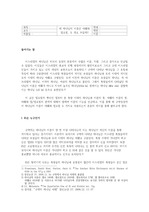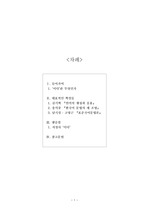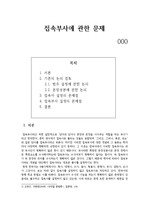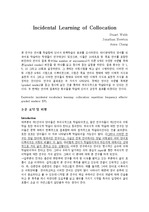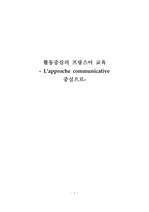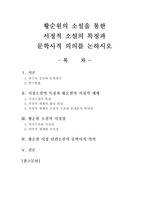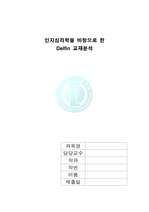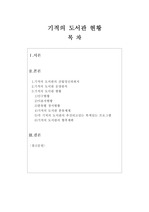

PARTNER
검증된 파트너 제휴사 자료
‘~이고 ~이고’ 구문의 형식과 의미 (Form and Meaning of ‘~igo ~igo’ Construction)
한국학술지에서 제공하는 국내 최고 수준의 학술 데이터베이스를 통해 다양한 논문과 학술지 정보를 만나보세요.
25 페이지
최초등록일 2025.03.19
최종저작일
2021.06

-
서지정보
· 발행기관 : 한국어의미학회
· 수록지 정보 : 한국어 의미학 / 72권 / 123 ~ 147페이지
· 저자명 : 백인영
초록
This paper shows that, in Korean, there are coordination constructions which is not explainable in terms of the semantics of the simple combination of coordinator and coordinands. I argue that to explain these coordination constructions, for example, [A-‘igo’ B-‘igo’], we have to consider them as a “construction”, an independent symbol which has its own directly associated pair of a form and a meaning. Through the article, not only the construction [A-‘igo’ B-‘igo’], also constructions like [A-‘igo’ B-‘igo’ {universal quantifiers}], [A-‘igo’ {interrogatives}-‘igo’], [{interrogatives}-‘igo’] are treated. It seems that they express the free choice meaning, and have identity implication as a whole. Furthermore, from these meanings, the [-‘igo’ -‘igo’] constructions is used to introduce in discourse an category in which its members share a particular identity and to induce universal interpretation of this alternative set. These observations are built on the usage-based approach, the corpus-based research.영어초록
This paper shows that, in Korean, there are coordination constructions which is not explainable in terms of the semantics of the simple combination of coordinator and coordinands. I argue that to explain these coordination constructions, for example, [A-‘igo’ B-‘igo’], we have to consider them as a “construction”, an independent symbol which has its own directly associated pair of a form and a meaning. Through the article, not only the construction [A-‘igo’ B-‘igo’], also constructions like [A-‘igo’ B-‘igo’ {universal quantifiers}], [A-‘igo’ {interrogatives}-‘igo’], [{interrogatives}-‘igo’] are treated. It seems that they express the free choice meaning, and have identity implication as a whole. Furthermore, from these meanings, the [-‘igo’ -‘igo’] constructions is used to introduce in discourse an category in which its members share a particular identity and to induce universal interpretation of this alternative set. These observations are built on the usage-based approach, the corpus-based research.참고자료
· 없음태그
- # coordination constructions
- # conjunctive coordinator ‘igo’
- # free choice
- # identity implication
- # universal quantifiers
- # Restrictor
- # alternative set
- # indefinites
- # Usage-based Approach
- # construction grammar
- # chunks
- # 대등접속구문
- # 연접 접속조사 ‘이고’
- # 자유 선택
- # 동일성 함축
- # 전칭 양화
- # 제약부
- # 대안집합
- # 비한정사
- # 사용기반접근
- # 구문문법
- # 덩어리 표현
-
자주묻는질문의 답변을 확인해 주세요

꼭 알아주세요
-
자료의 정보 및 내용의 진실성에 대하여 해피캠퍼스는 보증하지 않으며, 해당 정보 및 게시물 저작권과 기타 법적 책임은 자료 등록자에게 있습니다.
자료 및 게시물 내용의 불법적 이용, 무단 전재∙배포는 금지되어 있습니다.
저작권침해, 명예훼손 등 분쟁 요소 발견 시 고객센터의 저작권침해 신고센터를 이용해 주시기 바랍니다. -
해피캠퍼스는 구매자와 판매자 모두가 만족하는 서비스가 되도록 노력하고 있으며, 아래의 4가지 자료환불 조건을 꼭 확인해주시기 바랍니다.
파일오류 중복자료 저작권 없음 설명과 실제 내용 불일치 파일의 다운로드가 제대로 되지 않거나 파일형식에 맞는 프로그램으로 정상 작동하지 않는 경우 다른 자료와 70% 이상 내용이 일치하는 경우 (중복임을 확인할 수 있는 근거 필요함) 인터넷의 다른 사이트, 연구기관, 학교, 서적 등의 자료를 도용한 경우 자료의 설명과 실제 자료의 내용이 일치하지 않는 경우
찾으시던 자료가 아닌가요?
지금 보는 자료와 연관되어 있어요!
문서 초안을 생성해주는 EasyAI


